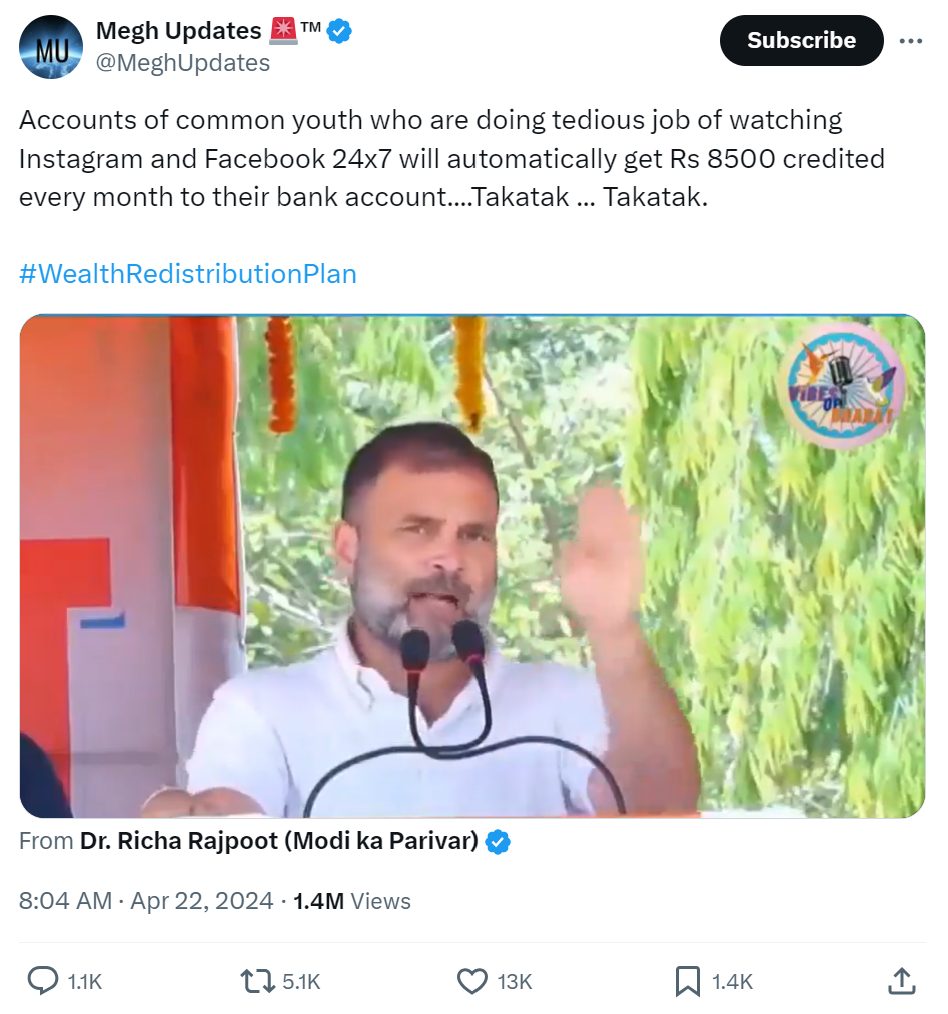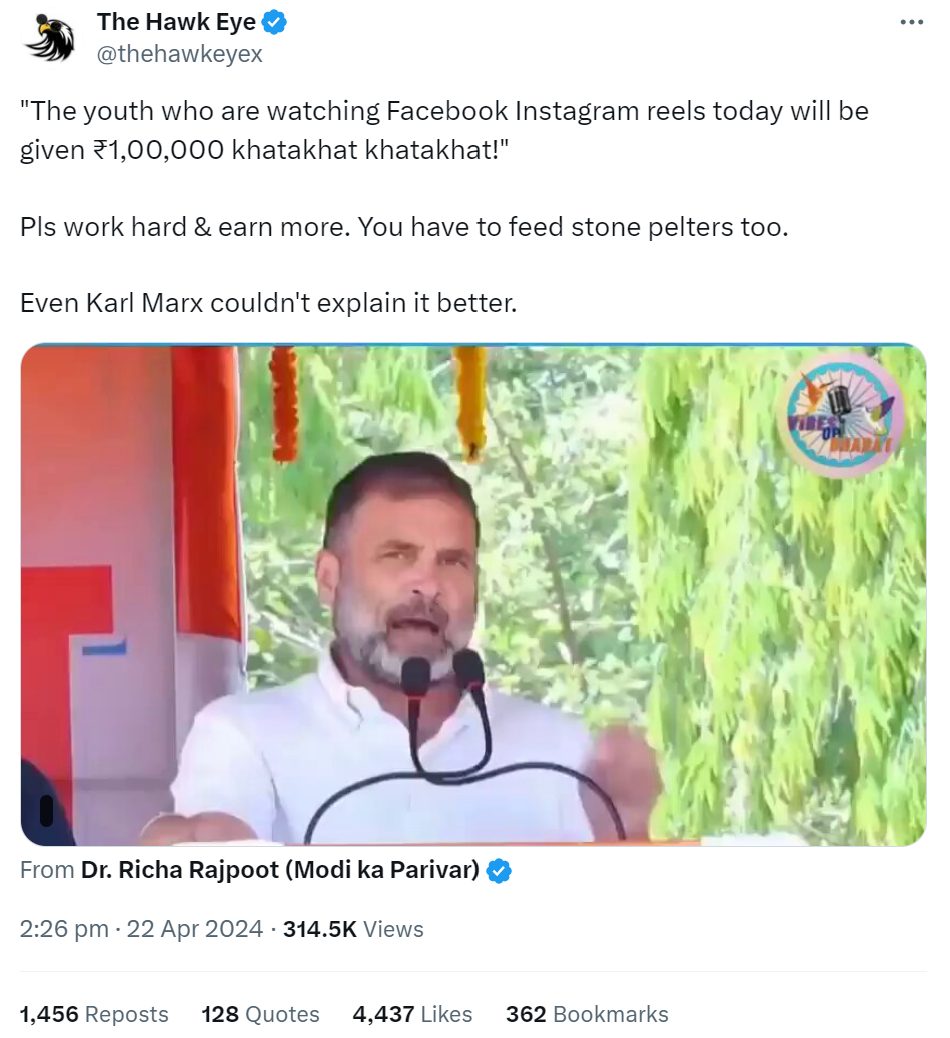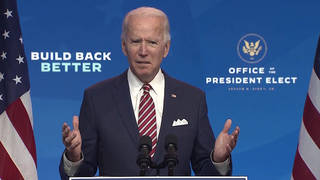A video of Congress MP Rahul Gandhi was viral on social media recently. It was shared with the claim that he had promised to deposit Rs. 1 lakh annually and Rs. 8,500 monthly into the accounts of youth who were seen wandering on the streets while browsing Instagram and Facebook.
BJP Uttar Pradesh youth wing social media head Richa Rajpoot shared the video, claiming that those using Instagram and Facebook would be made millionaires by emptying the pockets of wealth creators.
इंस्टाग्राम चलाओ फेसबुक चलाओ
और 10-10 बच्चे पैदा करो कांग्रेस आएगी तो मिडिल क्लास और वेल्थ क्रिएटर्स की जेब से निकाल के सबको लखपति बनाएंगे pic.twitter.com/rvUu4USgxI— Dr. Richa Rajpoot (Modi ka Parivar) (@doctorrichabjp) April 21, 2024
‘Megh Updates‘, an X handle that has been found sharing misinformation several times in the past, amplified the clip, claiming that youth doing the tedious work of browsing Instagram and Facebook would automatically receive Rs. 8,500 into their bank accounts every month.

Right-Wing propaganda account ‘The Hawk Eye‘ also posted the video of Rahul Gandhi, stating that youths watching Facebook and Instagram reels would be given a sum of Rs. 1 lakh.

Fact Check
Alt News performed a reverse image search of a frame taken from the viral video. This led us to a longer version of this video uploaded on Rahul Gandhi’s YouTube channel on April 20. According to the title, this video is from the party’s 2024 Lok Sabha elections campaign in Bhagalpur, Bihar.
At the 10:58 mark of this video, the Congress leader states, “Our second scheme is called ‘Guaranteed First Job.’ Now let me explain what ‘Guaranteed First Job’ means. It means we are going to give all the graduates and diploma holders of India the right to entrepreneurship. Applaud a little more, and I’ll explain it to you. The right to entrepreneurship means that every youth of India will be given the right to the first job by our next government. Just as we gave the right to employment in MGNREGA, similarly, we will give the graduates the right to their first job. The right to the first job means that all the graduates of India and diploma holders will get a one-year entrepreneurship opportunity for a sum of Rs. 1 lakh per year, or Rs. 8,500 per month, into their bank accounts. They will be trained, and if they perform well in the first year, they will be given a permanent job. These jobs related to entrepreneurship will be in the private sector, in public sector units, as well as in the government. So millions of youths will be trained, and India will get a trained workforce. And the youth who are wandering on the streets today, browsing Instagram and Facebook, will receive Rs. 1 lakh annually, Rs. 8,500 per month, and a promise from our government.”
The last sentence of the above-mentioned part of Gandhi’s speech was shared without context, giving the false impression that Rahul Gandhi promised to deposit Rs. 1 lakh annually or Rs. 8,500 monthly into the bank accounts of youths sitting idle and browsing Facebook and Instagram. Whereas, in reality, the politician was talking about providing a one-year entrepreneurship opportunity to all graduates and diploma holders.
To sum it up, during the election campaign in Bhagalpur, Bihar, Rahul Gandhi spoke about providing a one-year entrepreneurship opportunity to all graduates and diploma holders. Several BJP leaders and Right-Wing influencers shared a clipped version of this speech without context, claiming that he promised to deposit Rs. 1 lakh annually or Rs. 8,500 monthly into the bank accounts of youths sitting idle and browsing Facebook and Instagram.
The post Did Rahul Gandhi promise Rs 1 Lakh to youth browsing through Facebook, Instagram? Clipped video viral appeared first on Alt News.
This content originally appeared on Alt News and was authored by Abhishek Kumar.
This post was originally published on Radio Free.
